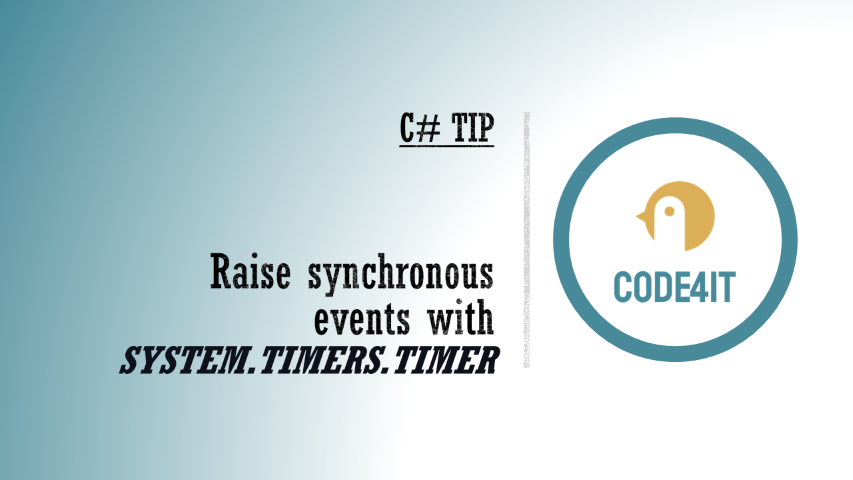C# Tip: Raise synchronous events using Timer (and not a While loop)
Just a second! 🫷
If you are here, it means that you are a software developer. So, you know that storage, networking, and domain management have a cost .
If you want to support this blog, please ensure that you have disabled the adblocker for this site. I configured Google AdSense to show as few ADS as possible - I don't want to bother you with lots of ads, but I still need to add some to pay for the resources for my site.
Thank you for your understanding.
- Davide
There may be times when you need to process a specific task on a timely basis, such as polling an endpoint to look for updates or refreshing a Refresh Token.
If you need infinite processing, you can pick two roads: the obvious one or the better one.
For instance, you can use an infinite loop and put a Sleep command to delay the execution of the next task:
while(true)
{
Thread.Sleep(2000);
Console.WriteLine("Hello, Davide!");
}
There’s nothing wrong with it - but we can do better.
Introducing System.Timers.Timer
The System.Timers namespace exposes a cool object that you can use to achieve that result: Timer.
You then define the timer, choose which event(s) must be processed, and then run it:
void Main()
{
System.Timers.Timer timer = new System.Timers.Timer(2000);
timer.Elapsed += AlertMe;
timer.Elapsed += AlertMe2;
timer.Start();
}
void AlertMe(object sender, ElapsedEventArgs e)
{
Console.WriteLine("Ciao Davide!");
}
void AlertMe2(object sender, ElapsedEventArgs e)
{
Console.WriteLine("Hello Davide!");
}
The constructor accepts in input an interval (a double value that represents the milliseconds for the interval), whose default value is 100.
This class implements IDisposable: if you’re using it as a dependency of another component that must be Disposed, don’t forget to call Dispose on that Timer.
Note: use this only for synchronous tasks: there are other kinds of Timers that you can use for asynchronous operations, such as PeriodicTimer, which also can be stopped by canceling a CancellationToken.
This article first appeared on Code4IT 🐧
Happy coding!
🐧


